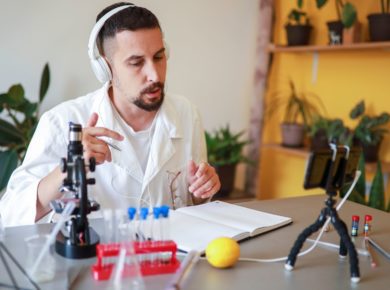Lesson planning can be a difficult process for first-year teachers. So many components come into play, and it can be challenging to figure out where exactly the first-year teacher should focus during the planning process. As a first-year teacher, you might struggle to implement strong lesson plans. Of course, you want your students to be engaged and excited about their learning. But it’s difficult to do this when you’re unsure how to plan effective lessons. Fortunately, we’ve compiled 10 tips to help you with your lesson-planning process, ensuring that your students are always engaged and excited! 10 Tips To Improve Lesson Planning For First Year Teachers.
Start Early
Before you begin planning your lessons, you’ll need some background information about the subject matter. For example, if you’re teaching science, you’ll want to research your topic and get a better idea of how it works. This will help you come up with creative ways to engage your students.
Use a Lesson Planning Template
A template will help you get your lesson plan started and give it an easy-to-follow format that keeps all the important pieces in order. Make sure that your template includes room for notes so that you can record what works and what doesn’t and make improvements before next time!

Ask Students Questions
If you’re like most teachers, you’ll want to guide your students through the material to ensure they understand the concepts and how they work. If you’re unsure if you are getting the information across, then simply ask your students questions so they can tell you what they learned.
Create a Big Picture of Your Lesson
An important aspect of planning is imagining what your students will see when they look at your lesson plans and how it will affect their learning. Instead of focusing on one specific skill, think about other skills you might use to help your students learn more effectively.
Use Your Research
Before you begin planning your lessons, take the time to look up sources of information and note what you find. This is a great method for ensuring that your students have an idea about the topic you’re teaching and will help them to understand what they’re learning, which is always important!
Question Everything
You might know the correct way to approach a subject, but that doesn’t necessarily mean that your students will. Instead of following a plan blindly and expecting your students to be along for the ride, challenge yourself to try new things that you think may work better than your original plan.
Create Your Lesson Plans Ahead of Time
If you’re like most teachers, you’ll want to take the time to write down a simple outline on how you want your lessons to go before you begin planning them. This will give you an idea of what it was like for other teachers and provide useful information about what worked and didn’t work in their plans.
Avoid All-Nighters
While it is nice to finish things at the last minute, several risks accompany it. For example, you might find yourself rushing through your work and making mistakes or you might find yourself getting burned out. Either way, you won’t have time to thoroughly plan Everything and will have to settle for a quick lesson idea that might not be as effective as you hoped.
Be Flexible for cbetter lesson planning
Despite your best intentions and careful planning, things can still go wrong in a classroom setting. You’ll have students who don’t want to participate, you’ll have unexpected questions that take more time than you expected and other things will happen that can make your lesson feel like a burden. When things go wrong, make changes to your plans on the fly so that you can get back on track quickly!
Develop Good Communication Skills
The best teachers are those who can communicate effectively with their students and other staff members, whether they’re just getting started or they’ve been in the classroom for years. If you don’t have good communication skills, then it will be much more difficult for you to facilitate learning for your students. So, figure out your communication style and make it work for you!
Some More Quick Tips on How to Increase Student Engagement as First Year Teacher:
– Emphasize your classroom rules and talk about consequences that may happen without these rules followed, such as students not meeting expectations or missing class time when they need it most
– As students walk into your classroom set up an active learning area where they will spend their time (i.e. puzzles, toys, etc. that are appealing to students)
– In order to engage students as you enter the classroom for the first time, ask questions that require more than a yes or no answer. For example: “What is your favorite subject and why?” or “What are you excited about this year?”
– Assist students in becoming familiar with each other before stepping foot into the classroom by having them work in partners or small groups. This will help build relationships while they are outside the classroom and put them based on “cooperation” rather than feeling like they are competing against one another.
Conclusion
Being a first-year teacher can be both challenging and rewarding. You’ll have the opportunity to make your own decisions and create a positive environment that is best for your students. If you haven’t already, take the time to consider these tips so that you can improve how you plan your lessons!




